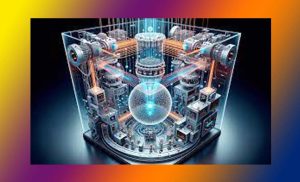Quantum Computing
Quantum Computing: Unleashing the Power of Quantum Mechanics
Introduction:
Quantum Computing is a revolutionary field at the intersection of physics, computer science, and information theory. This essay explores the foundational concepts of quantum computing, its principles, potential applications, challenges, and the transformative impact it could have on solving complex problems that classical computers struggle with.
Understanding Quantum Computing:
Quantum computing harnesses the principles of quantum mechanics to perform computations. Unlike classical computers that use bits to represent either a 0 or a 1, quantum computers use quantum bits or qubits. Qubits, thanks to the principles of superposition and entanglement, can exist in multiple states simultaneously, exponentially increasing the computational power.
Key Principles of Quantum Computing:
Superposition: Qubits can exist in multiple states at the same time, allowing quantum computers to explore multiple solutions to a problem simultaneously.
Entanglement: Qubits can become entangled, meaning the state of one qubit is directly related to the state of another, regardless of the physical distance between them. This enables quantum computers to exhibit strong correlations.
Potential Applications of Q C:
Quantum computing holds promise in solving problems that classical computers find daunting due to their sheer complexity. Some potential applications include:
Optimization Problems: Quantum computers could optimize complex systems, such as logistics, financial portfolios, and supply chains, by quickly exploring a multitude of possibilities.
Cryptography: Quantum computers could potentially break certain cryptographic schemes currently considered secure, leading to the development of quantum-resistant cryptographic algorithms.
Drug Discovery: Simulating molecular interactions accurately is computationally intensive. Quantum computers could significantly accelerate drug discovery processes by simulating molecular behavior with unprecedented precision.
Challenges in Q C:
Decoherence: Quantum states are delicate and can be easily disrupted by external factors, leading to errors in computations. Maintaining coherence over extended periods is a significant challenge.
Error Correction: Quantum computers are susceptible to errors due to their sensitivity to external influences. Developing effective error correction mechanisms is a critical area of research.
Hardware Development: Building and scaling quantum hardware with a sufficient number of stable qubits is a complex engineering challenge. Researchers are exploring various physical implementations, such as superconducting circuits and trapped ions.
Impact on Classical Computing:
While quantum computers have the potential to solve specific problems exponentially faster than classical computers, they are not intended to replace classical computers. Instead, they complement classical computing, addressing certain classes of problems that are currently impractical or infeasible for classical computers to solve efficiently.
The Future of Q C:
The future of quantum computing involves overcoming current challenges, achieving greater qubit stability, and developing practical quantum algorithms. As quantum hardware matures, we may witness a transformative shift in computational capabilities.
Conclusion:
Quantum computing is not just a technological leap; it represents a paradigm shift in our approach to computation. As we navigate the quantum realm, addressing challenges, fostering innovation, and embracing the potential of quantum computing for solving complex problems will be pivotal. In the vast landscape of technology, quantum computing stands as a beacon, pointing towards a future where the computational boundaries of classical computing are pushed to new frontiers. 0 0 0.
N.B. The article originally belongs to the book ‘Select Essays on Technology‘ by Menonim Menonimus.
You May Like:
- What is Website-A Comprehensive Study
- Wearable Technology
- List of Websites for Students
- Tips for Best SEO
Additional Searches:
- Essay on Technology
- Technology Essay
- Digital Technology











